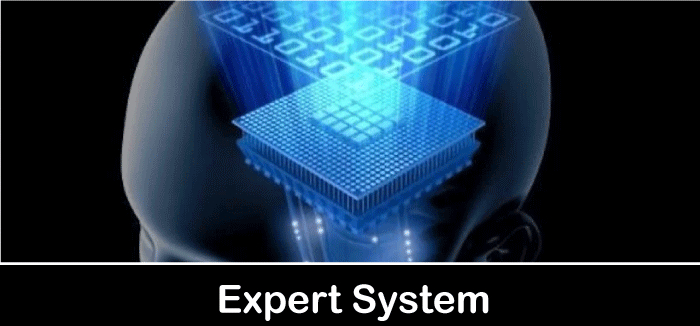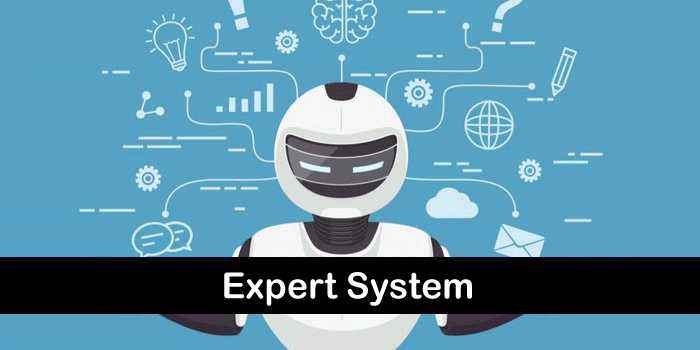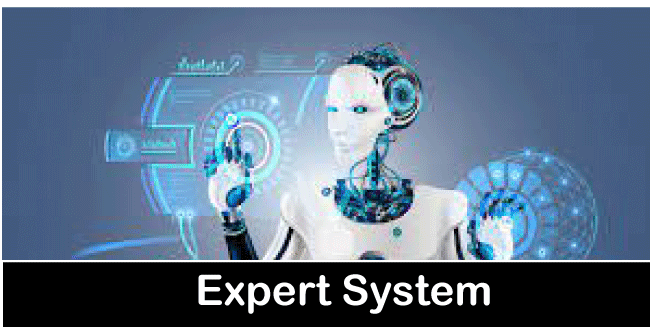Advantages and Disadvantages of Expert SystemIt is a computer program that uses artificial intelligence technologies to stimulate the judgment and behavior of an organization or human with expertise and experience in a particular field. It is formulated to solve a complex problem and offers decision-making ability similar to humans. 
Expert systems are meant to complement, not replace, human experts. It was developed by the scientist professor Edward Feigenbaum. He was the founder of Stanford University and Stanford's Knowledge system laboratory. The globe was shifted from data processing to knowledge processing, as said by Feigenbaum. The statement meant that Computers could do complex problems apart from basic calculations, and the credit goes to the new processor technology and computer architectures, he elaborated. It was one of the successful forms of artificial intelligence software. The Working Style of the Expert System
Modern expert knowledge system makes use of machine learning and artificial intelligence. The systems store facts and experience in a knowledge base and integrate them with an inference or rules engine. A set of rules are applied to the knowledge base for problems provided in the program method used by the inference engine to acquire the information from the knowledge-based are:
Components of Expert System
The components of expert systems are: 1. Knowledge Acquisition Subsystem It refers to the transmission, gathering, and conversion of problem-solving capability from documented sources or experts to a computer program. It helps in the development and construction of the knowledge base. Knowledge sources include special research reports, databases, textbooks, human experts, and multimedia documents. 2. Knowledge Base The main component of the expert system is knowledge. The knowledge is important for understanding and solving the query and becomes part of the knowledge base. It has been divided into two parts: 3. Special Heuristics or Rules They administer knowledge to solve a particular query in a specific area. The informal judgemental knowledge in an application area is exhibited through rules or heuristics. 4. Facts It covers the details about the issue or area 5. Inference Engine The engine is regarded as the brain of the expert system. It is also referred to as a control structure or the rule interpreter. It rules the reasoning about the details present in the knowledge base. It gives guidelines for using the knowledge base to reach a conclusion and steps taken to resolve the issue. 6. User Interface One of the key components in the Expert system is the language processor. It offers easy communication. It is that part of the system where end-users meet to receive an answer to their query. Advantages of the Expert system1. Enhanced Output and Productivity An expert system works more rapidly than a normal human-beings. 2. Reduce the Decision-Making Time With the help of the Expert system, a human being can make decisions at a rapid speed. It is efficient for the frontline decision-maker, whom they often meet with customers. 3. Enhance Process and Product Quality The expert system offers the best advice, reducing the size and rate of errors. It helps in improving product quality. 4. Flexibility It provides flexibility in the service and manufacturing sectors. 5. Decrease the Downtime Machine downtime is decreased as Expert System can find malfunctions and suggest repairs when needed. 6. Easier Equipment Operations With the help of the Expert system, the complex equipment becomes easier to administer. 7. The Capture of Scarce Expertise An expert system offers support when the expertise becomes scarcely available. This situation arises when experts are not available to present for the task, the expert is on the verge of retiring, or the required expertise is needed in more than one place. 8. Removal of the Need for Expensive Equipment Expert system act as monitoring and control with the help of low-cost instruments. It is achievable as the Expert system promptly and in detail analyses the information by the instruments. 9. Functioning in the Difficult Environment The expert system allows human beings to ignore working in dangerous condition as the Expert system tend to ignore the hot, toxic, and moist environment. For example, a malfunctioned nuclear plant. This is beneficial in a time of war. 10. Accessibility to Knowledge and Help Desks It allows access to knowledge and relieves the experts from their daily routines. People can put forward their queries and can receive satisfactory replies. 11. Criteria of Training The expert system offers training to the new ones who turn experienced with the work. Explanations and notes are installed in the knowledge system base and behave as teaching tools. 12. Improves Decision-Making Process and Quality It endorses a better understanding of the decision-making condition as it offers immediate feedback, facilitates communication among the decision-makers, and permits quick responses to environmental change. It is reliable as it gives attention to details and tries to provide an error-free solution. 13. 24 X 7 The expert system is accessible 24 x7 and never rest offs. It decreases dependence on one expert. It is devoid of emotion; unlike humans, the decision would be the purely rational base. 14. High Level of Experience One of the interesting characteristics of the Expert system is that it offers high-level expertise while solving the query. It provides the best thinking, just like good experts, and ends up with accurate, efficient, and imaginative solutions to the problem. 15. Institutional Memory This system is a corpus of knowledge, and thus it behaves as institutional memory. It implies that their expertise remains firm when important people leave the organization. This feature is extremely important in business, particularly in the government and military, which witness frequent transfers and high turnovers. 16. Predictive Modelling Power The system behaves as a problem-solving model, offers quality solutions to given questions, and explains changes occurring in new situations. It's another important significant as it helps the user to analyze the possible impact of changes in data or facts. It also helps in analyzing the relationships between changes to the outcome. Disadvantages of Expert system1. Hard It isn't easy to obtain a better situational assessment in case of a restricted time frame. This applied to skilled experts also. 2. Requirement of Expert Engineers Expert engineers are needed for the design and development of the Expert system. The construction of an Expert system turns out to be an expensive affair as the availability of engineers is limited and costly. 3. Certain Tasks The expert system functions smoothly for specific types of operational and analytical tasks. 4. Limited Domain and Vocabulary It functions smoothly in limited problems, and it belongs to specific domains. It uses the limited vocabulary for the expression of relations and facts. 5. Different Thought, Costly and Dependent The approach taken by experts towards the assessment may be different, yet all correct. It does not offer an independent way of verifying whether the conclusion is scientific. The maintenance cost is very expensive. Conventional System vs. Expert System
Next TopicAdvantages and Disadvantages of Food
|
 For Videos Join Our Youtube Channel: Join Now
For Videos Join Our Youtube Channel: Join Now
Feedback
- Send your Feedback to [email protected]
Help Others, Please Share










